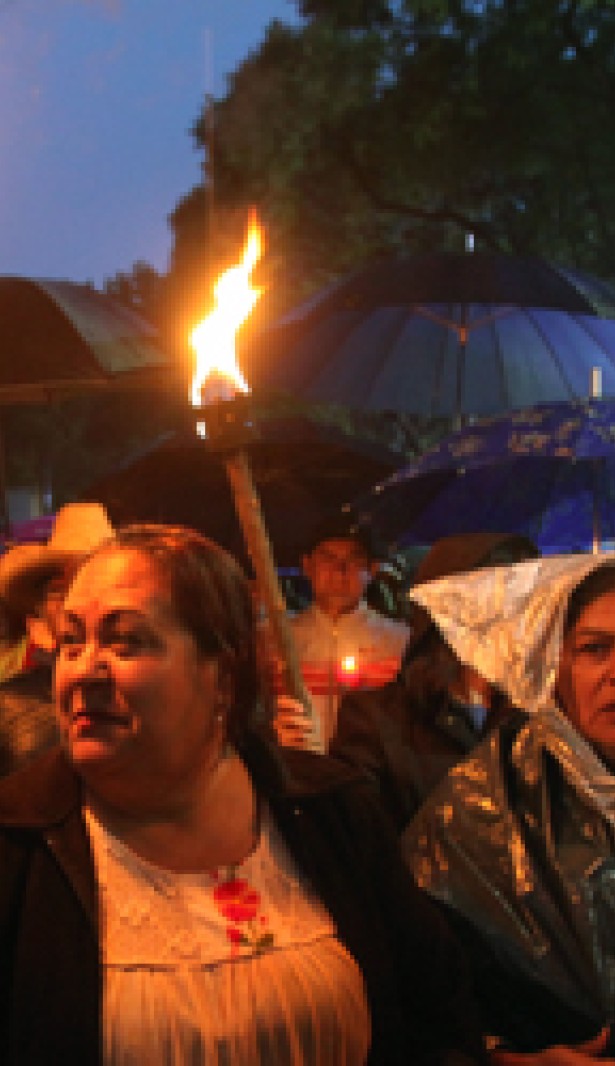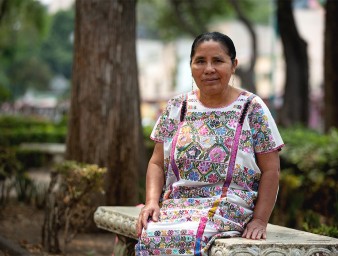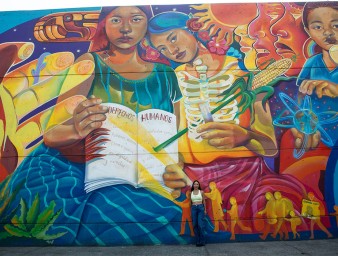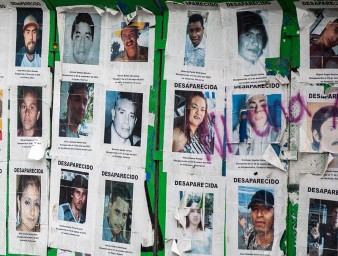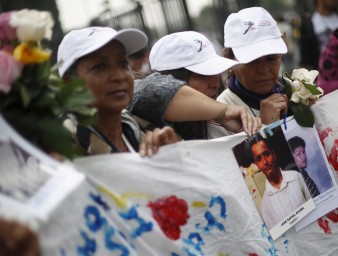Victims of Nochixtlán: a cry for justice
08 February 2018
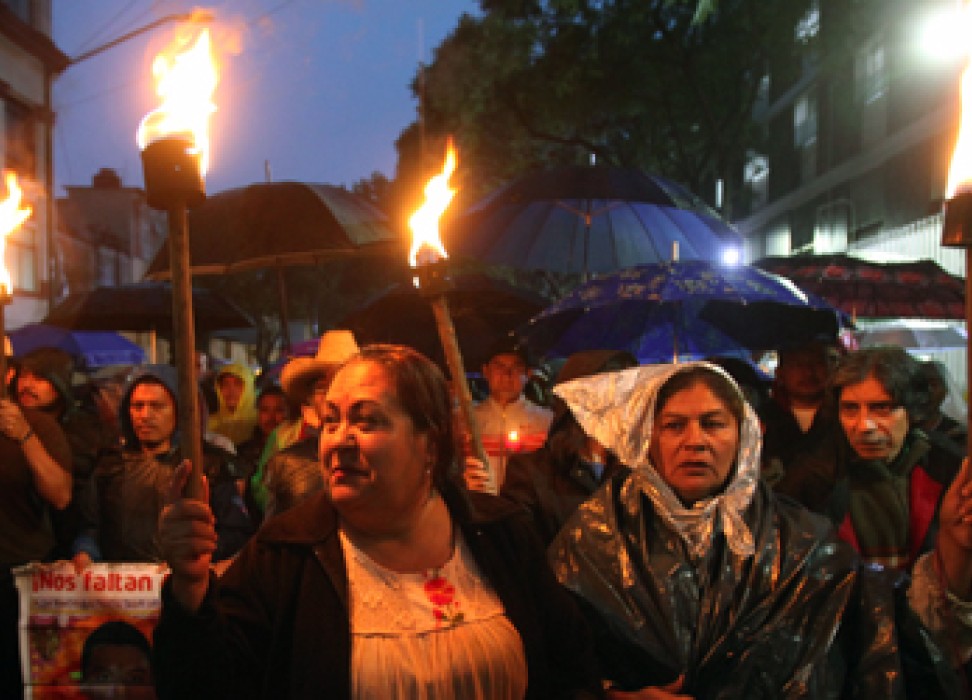
It has been a year and a half since Sergio Luna´s 23-year-old son Oscar died during a protest in the small town of Nochixtlán, in the Mexican state of Oaxaca.
“Really, I wish that no parent has to live through what we did,” says Luna.
It was June 2016 and police took action to break up a roadblock protest staged by a teacher’s trade union as part of widespread protests against the Government´s education reform. The large-scale police operation spread through the town and involved live gunfire. When it ended, more than 100 people were injured and six dead, including Sergio Luna’s son.
“When Oscar was shot, from a distance, I tried to carry him to the medical center,” recalls Javier Luna, Oscar’s brother. “But the police blocked the entry to the center, and he bled to death. It was the most desperate moment of my life.”
The UN Human Rights Office in Mexico has been following the case from the start – documenting the violations in Nochixtlán itself, accompanying mediation efforts and making public statements about the case.
“This is an emblematic case,” says Jan Jarab, UN Human Rights Office Representative in Mexico. “Its resolution will be important not only for the direct victims, but also for Mexican society as a whole. It will show whether the authorities are ready to accept responsibility for human rights violations in the context of public protests – or whether the tradition of impunity and cover-ups prevails one more time.”
In the immediate aftermath of the tragedy, the UN Human Rights Office in Mexico helped organize several round tables, in conjunction with the Mexican National Human Rights Institution (NHRI) and the Ombudsman’s Office of Oaxaca, to mediate between the Government and the survivors since many of them were too afraid to go to the Mexican Office of the Attorney General (PGR in Spanish) to testify, fearing reprisals.
After reviewing videos from the day, as well as witness accounts, the Office found evidence of excessive use of force on the part of the police toward the townspeople, Jarab said. Videos obtained by OHCHR showed police using firearms.
In addition, the human rights violations extended to persons not involved in the events. Police threw tear gas from helicopters to a community far from the scene of the clash, causing harm to its residents, including children. They also detained a family who was attending a funeral for many hours in degrading conditions. In Huitzo, some 25 km away from Nochixtlán, Office staff interviewed an elderly man who had nothing to do with the protests, who told how he was savagely beaten by the police. The local population had a long history of grievances and mistreatment by the authorities.
In September 2016, the Oaxaca Ombudsman, Arturo Peimbert, offered to have the testimonies of the victims given to the PGR in his own office, in the presence of both human rights commission officials and the UN Human Rights Office. This was seen as a way to bridge the fear between local victims of the PGR.
But this didn’t happen, said Santiago Ambrosio, a teacher who chairs the Nochixtlán Committee of Victims.
“The PGR appeared to accept it, but then they backed down and focused only on collecting the testimony of the police,” he said.
Only in December 2017, 15 months later, was the Luna family able to testify to the PGR in the Oaxaca Ombudsman´s office, Ambrosio said.
“But even there, the PGR staff treated the victims with hostility,” he said.
Ombudsman Peimbert pointed out that this took place only on the same day the victims finally had access to the official case file.
“It is a huge file of 21 volumes, all of which contain only the statements of the police, incriminating the victims. The voice of the victims themselves is totally absent there,” he said.
Meanwhile, instead of justice, the victims have been receiving further harassment from the authorities, said Ambrosio. There have been numerous incidents of intimidation. For example, men in an unidentified car tried to kidnap Javier Luna, his family said.
“We are living in constant fear,” said his father Sergio.
In November last year, the National Commission for Human Rights of the country published a recommendation, highlighting the grave human rights violations that had been committed by the authorities, including acting with excessive use of force. The report called for responsibilities to be established for the entire chain of command.
8 February 2018
